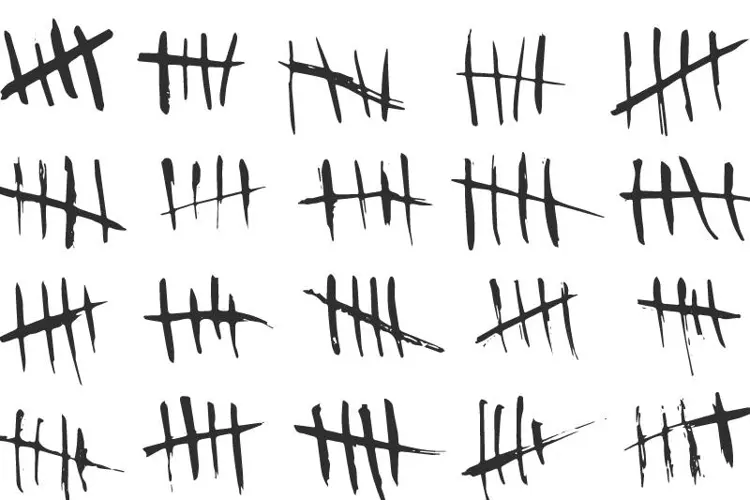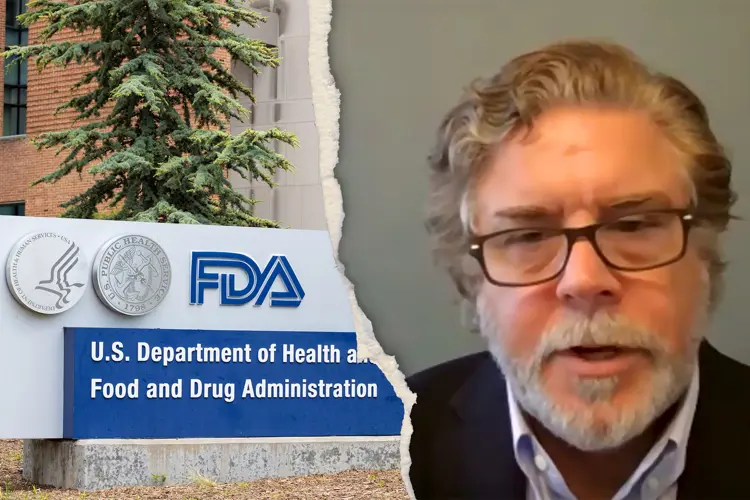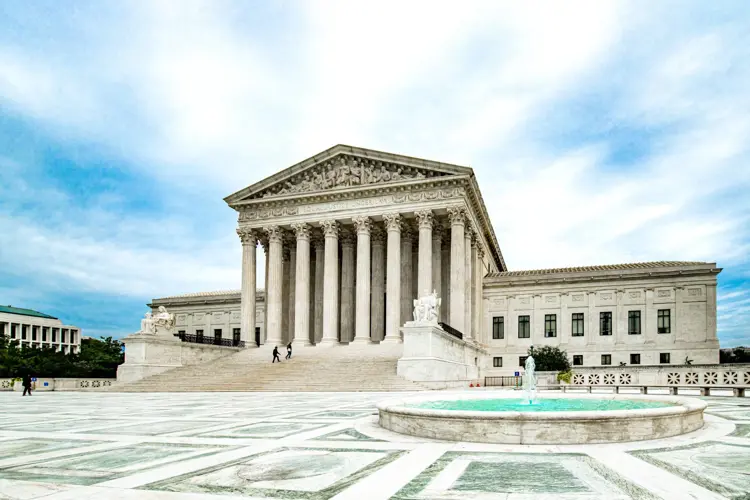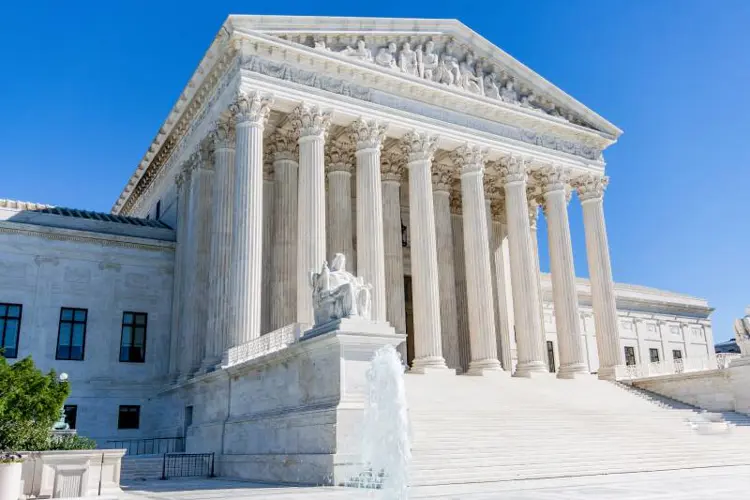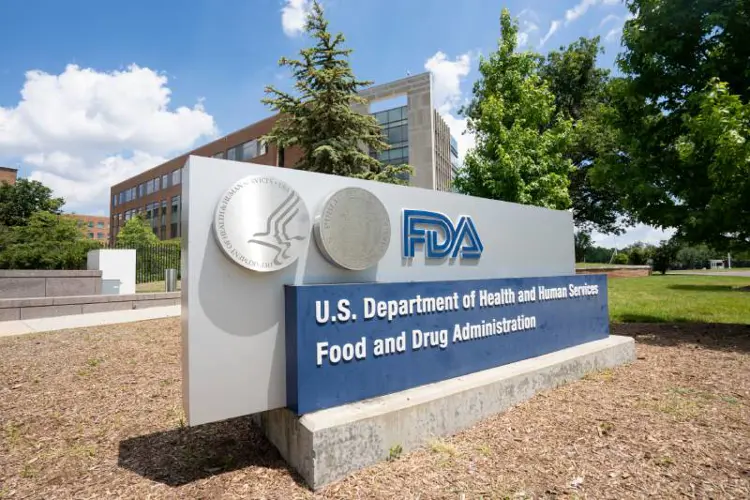Today the Department of Justice, on behalf of the FDA, sought injunctions against six small vaping businesses to prevent them from manufacturing or selling unauthorized vape products. The FDA says the companies sell products that were never submitted to the agency for premarket approval.
The actions merited a press release and social media blasts from the FDA, including predictably tough statements from rookie Center for Tobacco Products Director Brian King. “We will not stand by as manufacturers repeatedly break the law,” said King, “especially after being afforded multiple opportunities to comply.”
The cited companies are given the opportunity to sign an agreement to DOJ's terms, rather than opposing the injunctions. “Defendants have the opportunity to agree to consent decrees of a permanent injunction, which prevent them from directly or indirectly manufacturing, selling or distributing any new tobacco products unless and until certain prerequisites are met,” says the FDA.
But violating the injunctions, once they are agreed to or imposed by the courts, can lead to very serious punishments, including fines that would mean financial ruin for the business owners.
The actions mark the first time the FDA has filed for injunctions against vaping businesses to enforce the agency’s authority under the Tobacco Control Act. The FDA granted itself regulatory authority over e-cigarettes and other novel nicotine products in 2016 with its Deeming Rule.
Enforcement against tiny businesses, but not gigantic ones
Products that were on the market before Aug. 8, 2016 were allowed to remain on the market until Sept. 9, 2020—the submission deadline for premarket tobacco applications (PMTAs)—as long as the manufacturers registered with the FDA and followed labeling and other rules.
After that date, manufacturers were allowed to continue selling products for which PMTAs had been submitted for an additional year. But products for which no PMTA was submitted became immediately subject to FDA enforcement on the submission deadline date.
Nicotine products with submitted PMTAs that did not receive marketing authorization by Sept. 9, 2021—or have received a marketing denial order (MDO)—are also subject to enforcement. However, the FDA has not yet taken any legal action against that group of manufacturers, which includes Imperial Brands/Fontem US (Blu), British American Tobacco/RJ Reynolds (Vuse), Swedish Match (ZYN) and Altria (On!).
Due to the cost and bureaucratic red tape involved in submitting PMTAs, many small U.S. e-liquid manufacturers and other small vaping manufacturers and importers elected not to submit applications, and some continued to do business. Because many had followed the rules (at first) and registered their manufacturing facilities with the FDA, they weren’t hard for the agency to find.
The FDA used its registration database to identify manufacturers that did not submit PMTAs, and checked for active commerce websites with matching business names and addresses. Then the agency began sending warning letters (the agency says it sent nearly 300 letters between January 2021 and September 2022).
The actions taken today are all against companies that received warning letters during the last 21 months, and either didn’t respond or refused to stop doing business. The companies named in the DOJ complaints filed today are:
- Morin Enterprises Inc. (E-Cig Crib) - District of Minnesota
- Soul Vapor LLC - Southern District of West Virginia
- Super Vape’z LLC - Western District of Washington
- Vapor Craft LLC - Middle District of Georgia
- Lucky’s Convenience & Tobacco LLC (Lucky’s Vape & Smoke Shop) - District of Kansas
- Seditious Vapours LLC (Butt Out) - District of Arizona
FDA and DOJ actions won't affect disposable importers
While today’s announcement is the first public acknowledgement of the FDA’s escalation in tactics, the process began some time ago. According to Alex Norcia, a reporter at online harm reduction publication Filter, the joint FDA/DOJ actions against small vape businesses have been in the works since at least Sept. 1.
In his Sept. 13 article, Norcia detailed some of the threats the DOJ has made in letters to vaping manufacturers (presumably the two companies described in his article are among those named today). The companies were pressured to sign consent decrees, agreeing to cease sales and manufacturing, and would be forced to destroy existing product stock under FDA supervision (and responsible for the cost of the supervision).
Manufacturers who sign a consent decree essentially admit guilt and agree to terms of punishment in advance for future violations of the consent decree’s terms. They agree to DOJ’s financial penalties for future violations—and those penalties are severe, as one letter from the DOJ to a vape manufacturer explained:
“If any Defendant fails to comply with any provision of this Decree, the Act, or its implementing regulations, including any time frame imposed by this Decree, then Defendants shall pay the United States of America: five thousand dollars ($5,000) in liquidated damages for each day such violation continues; an additional sum of four thousand dollars ($4,000) in liquidated damages per day per violation, for each violation of this Decree, the Act, or its implementing regulations; and an additional sum in liquidated damages equal to twice the retail value of any product distributed in violation of this Decree, the Act, or its implementing regulations.”
Attacking tiny vape businesses while ignoring continued sales of products made by tobacco companies (which happen to have money and robust legal departments) is an FDA Center for Tobacco Products specialty. Most independent vape companies have become accustomed to the FDA’s typical shtick like warning letters and regulatory language switcheroos.
But the entry of the Justice Department into the fray is something new and ominous. It is intended to intimidate the many small vape companies that haven’t yet had a serious run-in with the FDA, and convince them to quit before it happens. It is meant to advance the FDA’s goal of eliminating the independent open-system/e-liquid industry as quickly as possible—and millions of American vapers be damned.
“Mr. King seems delighted to kick in the doors of small businesses, but turns a blind eye to the millions of Americans who rely on nicotine vaping to quit cigarettes,” American Vapor Manufacturers Association President Amanda Wheeler said in a statement today. ”The ongoing result is countless people being driven back to smoking and more hard proof that Mr. King and FDA are failing at their jobs, to the immense harm of their fellow citizens and public health.”
What the DOJ action won’t do is scare away the importers of gray market disposable vapes. Those companies will simply change their names and addresses, or the names of their products, and continue offering their wares on the shelves of convenience stores. It is only the companies that registered with the FDA—marking themselves for future enforcement—that will suffer the brunt of the agency’s new tactics.
The Freemax REXA PRO and REXA SMART are highly advanced pod vapes, offering seemingly endless features, beautiful touchscreens, and new DUOMAX pods.
The OXVA XLIM Pro 2 DNA is powered by a custom-made Evolv DNA chipset, offering a Replay function and dry hit protection. Read our review to find out more.
The SKE Bar is a 2 mL replaceable pod vape with a 500 mAh battery, a 1.2-ohm mesh coil, and 35 flavors to choose from in 2% nicotine.
Because of declining cigarette sales, state governments in the U.S. and countries around the world are looking to vapor products as a new source of tax revenue.
The legal age to buy e-cigarettes and other vaping products varies around the world. The United States recently changed the legal minimum sales age to 21.
A list of vaping product flavor bans and online sales bans in the United States, and sales and possession bans in other countries.







